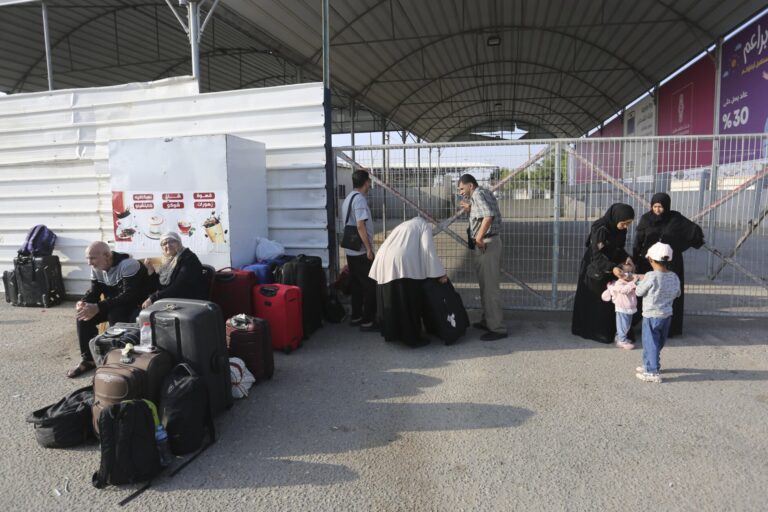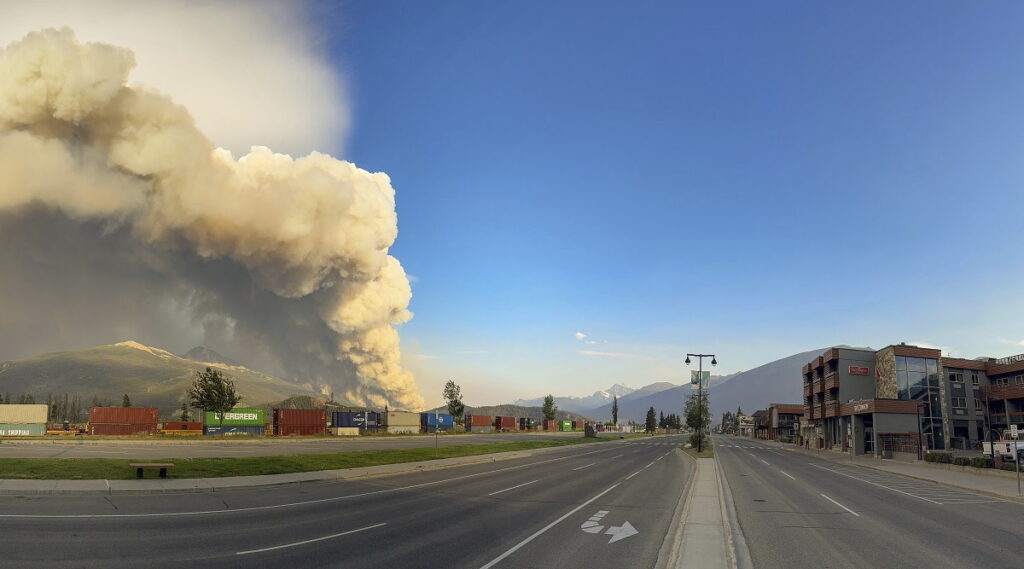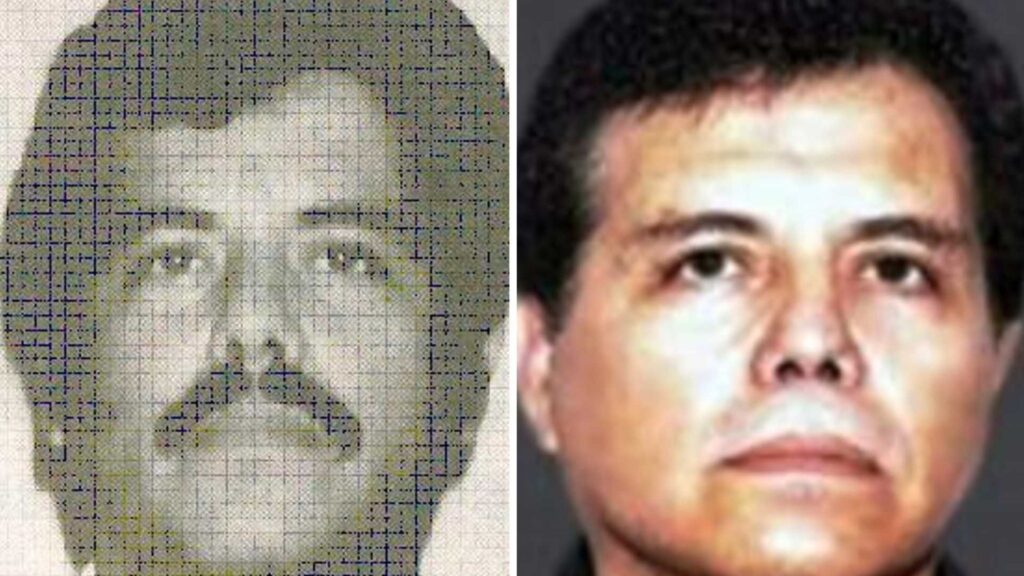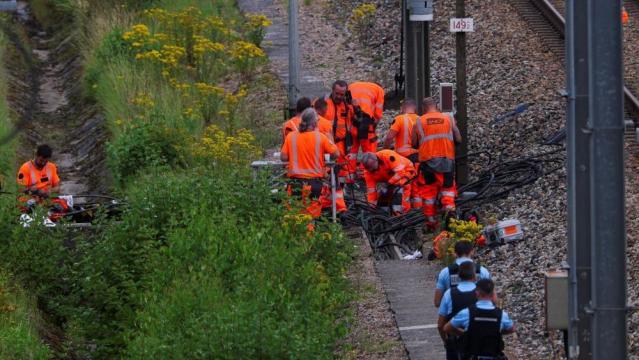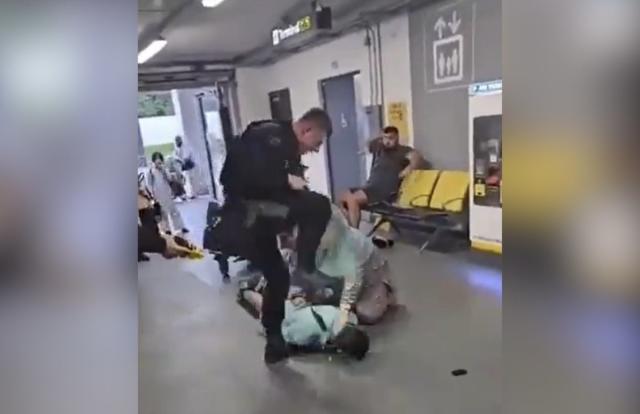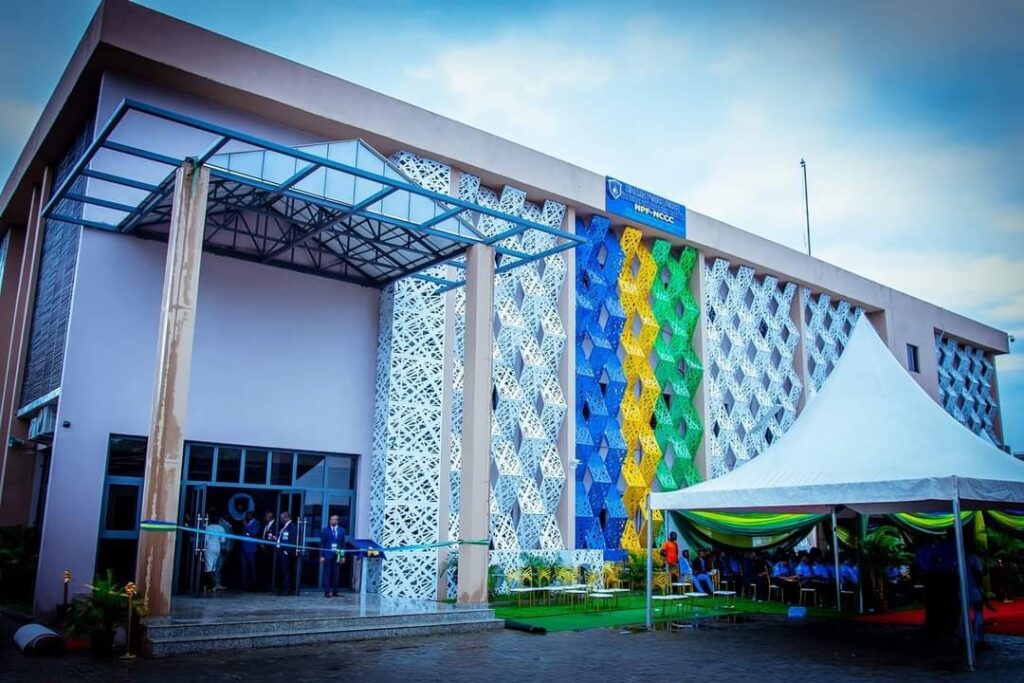Gaza was plunged into another communications blackout Wednesday, with internet and phone service cut for several hours as Israeli troops battled Hamas militants. Meanwhile, dozens of foreign passport holders crowded into a border crossing ahead of what could be the first such departure from the besieged Palestinian enclave.
Communications began to be restored later in the day, but aid agencies warned that such blackouts severely disrupt their work in an already dire situation. Daily airstrikes have displaced more than half of the population and basic supplies are running low. On Tuesday, an Israeli barrage leveled apartment buildings in a refugee camp near Gaza City, killing an unknown number of people.
No one has been allowed to leave Gaza, except for four hostages released by Hamas, since Israel declared a total siege in the wake of the militants’ bloody Oct. 7 rampage into southern Israel. Disagreements among Egypt, Israel and Hamas have prevented any exit, even as hundreds have gathered at the Rafah crossing, the only one currently operating, at different times in recent weeks.
The Palestinian crossing authority said more than 400 foreign passport holders would be permitted to leave Gaza for Egypt on Wednesday, as would a small number of wounded people. Egypt has said it will not accept an influx of Palestinian refugees because of fears Israel will not allow them to return to Gaza after the war.
Dozens of people could be seen entering the Rafah crossing, while ambulances drove in from the other direction. Egypt’s Health Ministry said more than 80 wounded Palestinians would be brought in for treatment, and a field hospital has been set up in an Egyptian town near the crossing.
But as a few hundred prepared to leave, the rest of of Gaza’s 2.3 million people found themselves cut off from the world — and each other — once again.
The Palestinian telecoms company Paltel said internet and mobile phone services were gradually being restored in Gaza following a “complete disruption” that was also reported by internet-access advocacy group NetBlocks.org. It was the second time residents were largely cut off after communications went down over the weekend, as Israeli troops pushed into Gaza in larger numbers.
The International Committee of the Red Cross said communication blackouts disrupt the work of first responders and make it harder for civilians to seek safety. “Even the potentially life-saving act of calling an ambulance becomes impossible,” said Jessica Moussan, an ICRC spokesperson.
More than 8,500 Palestinians have been killed in the war, mostly women and minors, and more than 21,000 people have been wounded, the Gaza Health Ministry said Tuesday, without providing a breakdown between civilians and fighters. The figure is without precedent in decades of Israeli-Palestinian violence.
Over 1,400 people have died on the Israeli side, mainly civilians killed during Hamas’ initial attack, also an unprecedented figure. Palestinian militants also abducted around 240 people during their incursion and have continued firing rockets into Israel.
The Israeli military confirmed Wednesday that nine soldiers have been killed in fighting in northern Gaza, bringing the total of military casualties since the start of the ground operation to 11.
On Tuesday, rescuers frantically dug through the rubble of apartment buildings leveled in Israeli airstrikes on the Jabaliya refugee camp near Gaza City, pulling out men, women and children. The director of a nearby hospital where casualties were taken, Dr. Atef Al-Kahlot, said hundreds of people were wounded or killed, but the exact toll was not yet known.
Israel said the strike, which targeted senior Hamas military leader Ibrahim Biari, destroyed a militant command center and an underground tunnel network, and killed dozens of other fighters. Military spokesman Jonathan Conricus said Biari had also been a key planner of the Oct. 7 attack, and that the apartment buildings collapsed only because the underground Hamas complex had been destroyed.
Neither side’s account could be independently confirmed.
The strike underlined the anticipated surge in casualties on both sides as Israeli troops advance toward the outskirts of Gaza City and its dense residential neighborhoods. Israeli officials say Hamas’ military infrastructure, including hundreds of kilometers (miles) of underground tunnels, is concentrated in the city, which was home to some 650,000 people before the war.
Israel has been vague about its operations in Gaza, but residents and spokesmen for militant groups say troops appear to be trying to take control of the two main north-south roads.
An estimated 800,000 Palestinians have fled south from Gaza City and other northern areas following Israeli orders to evacuate, but hundreds of thousands remain in the north, including many who left and later returned because Israel is also carrying out airstrikes in the south.
Gaza has been sealed off since the start of the war, causing shortages of food, water, medicine and fuel. Israel has allowed international aid groups to send more than 200 trucks carrying food and medicine to enter from Egypt over the past 10 days, but aid workers say it’s not nearly enough.

